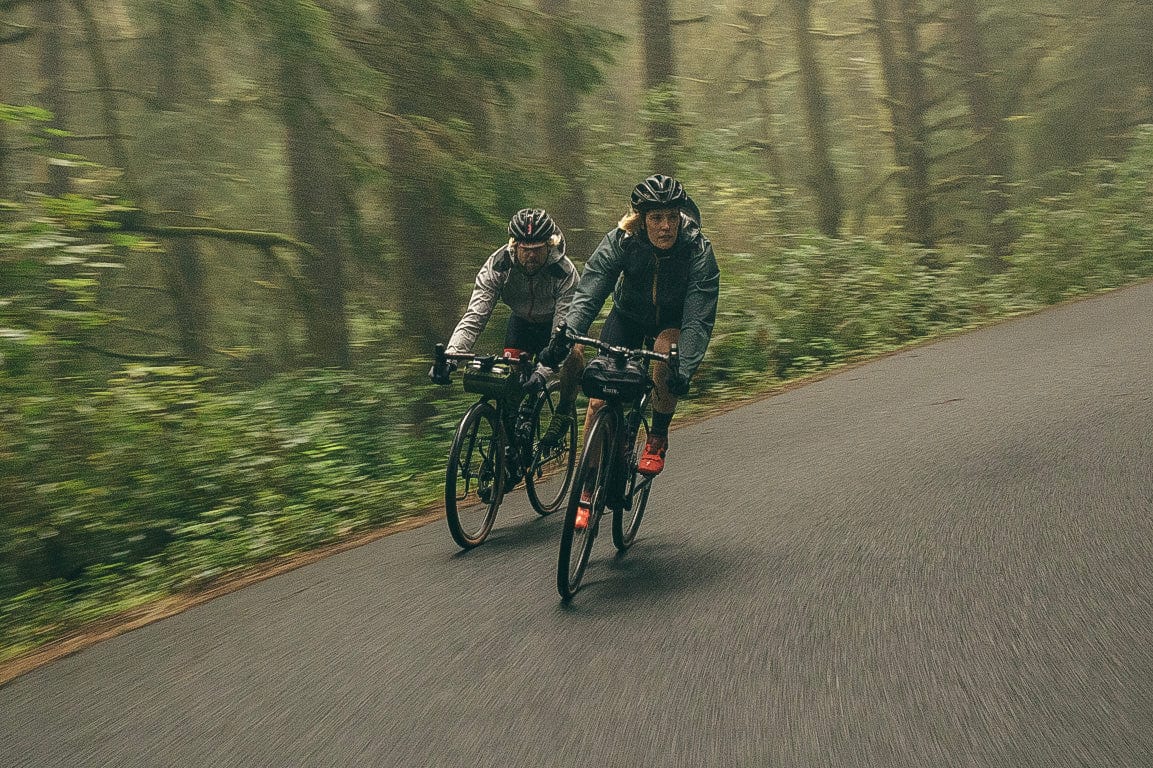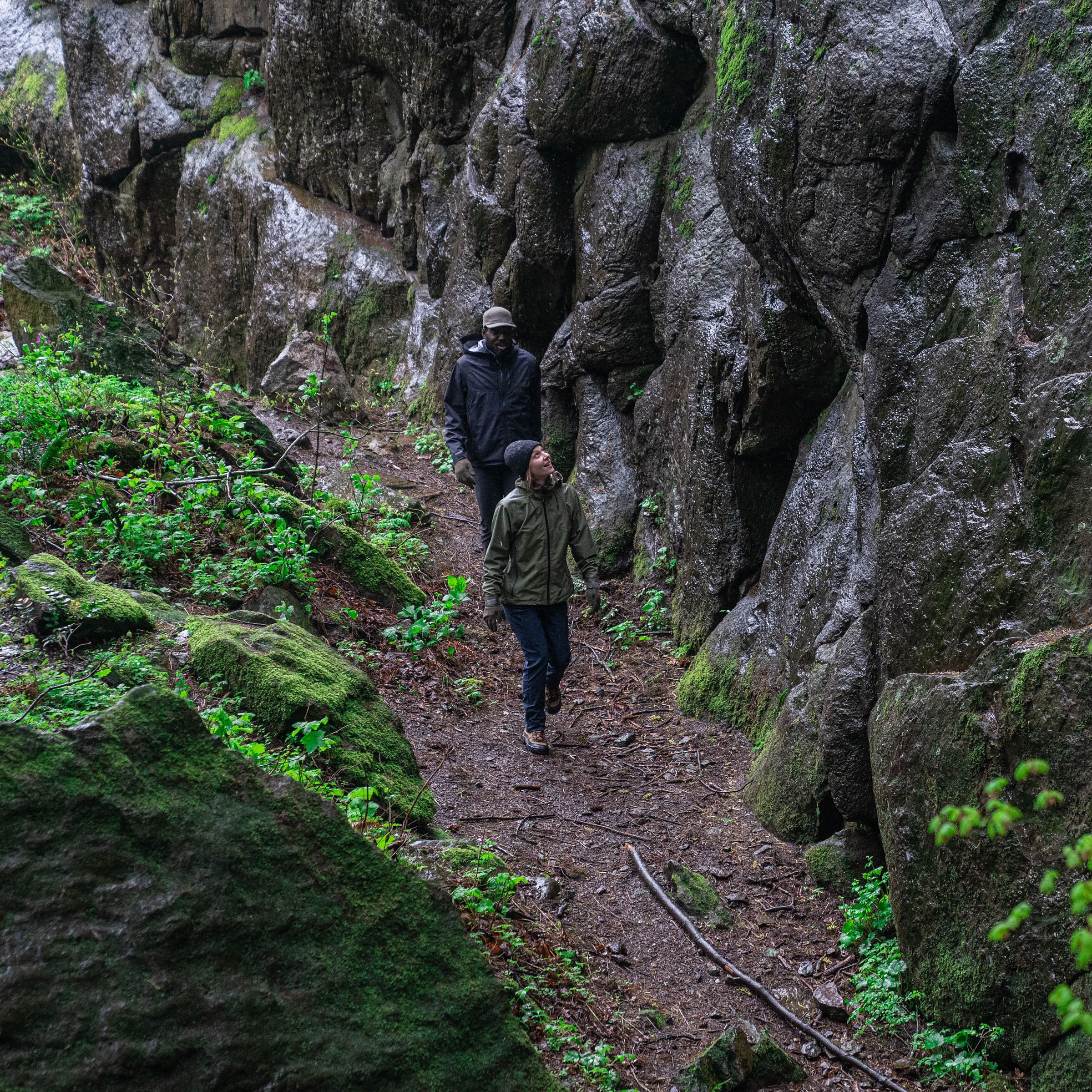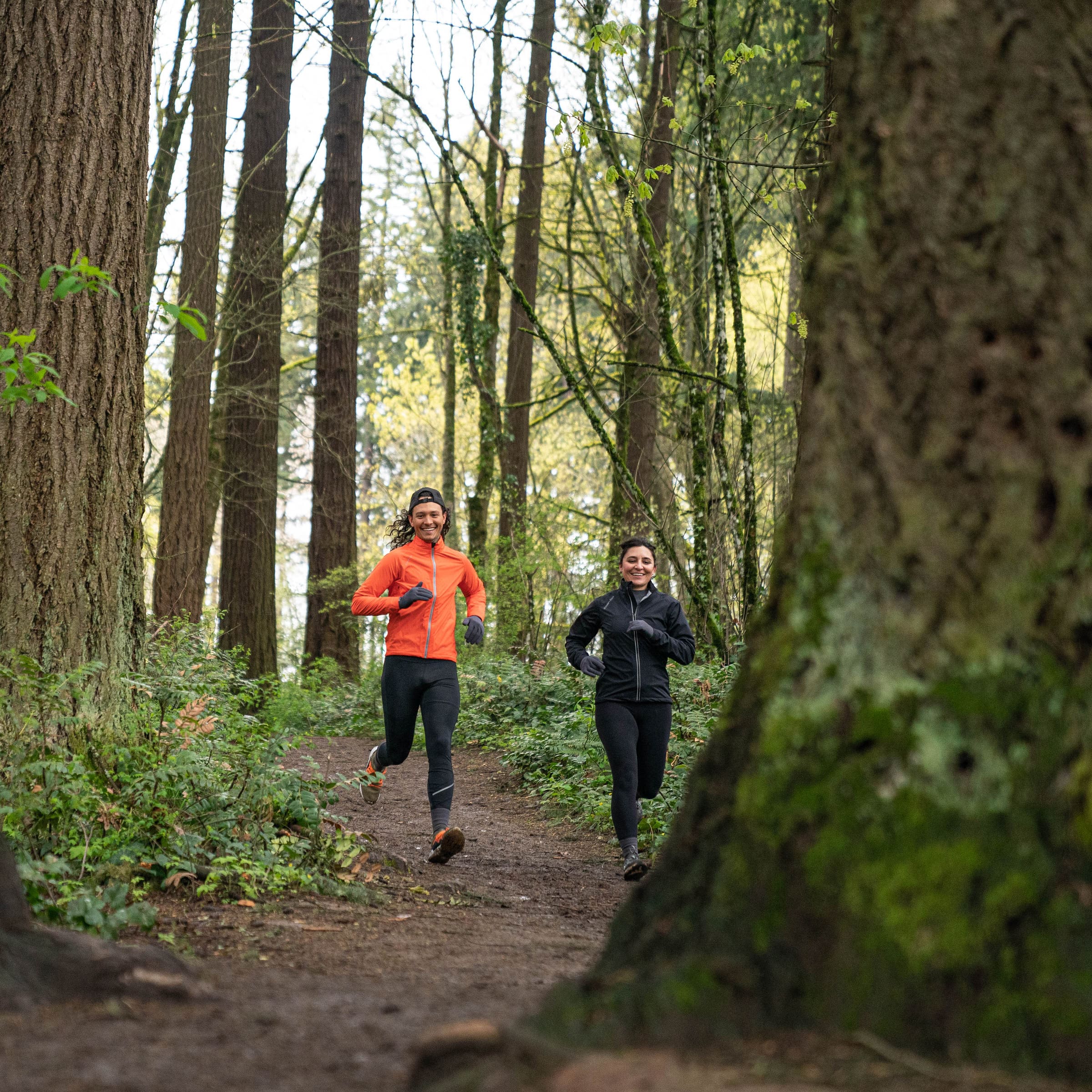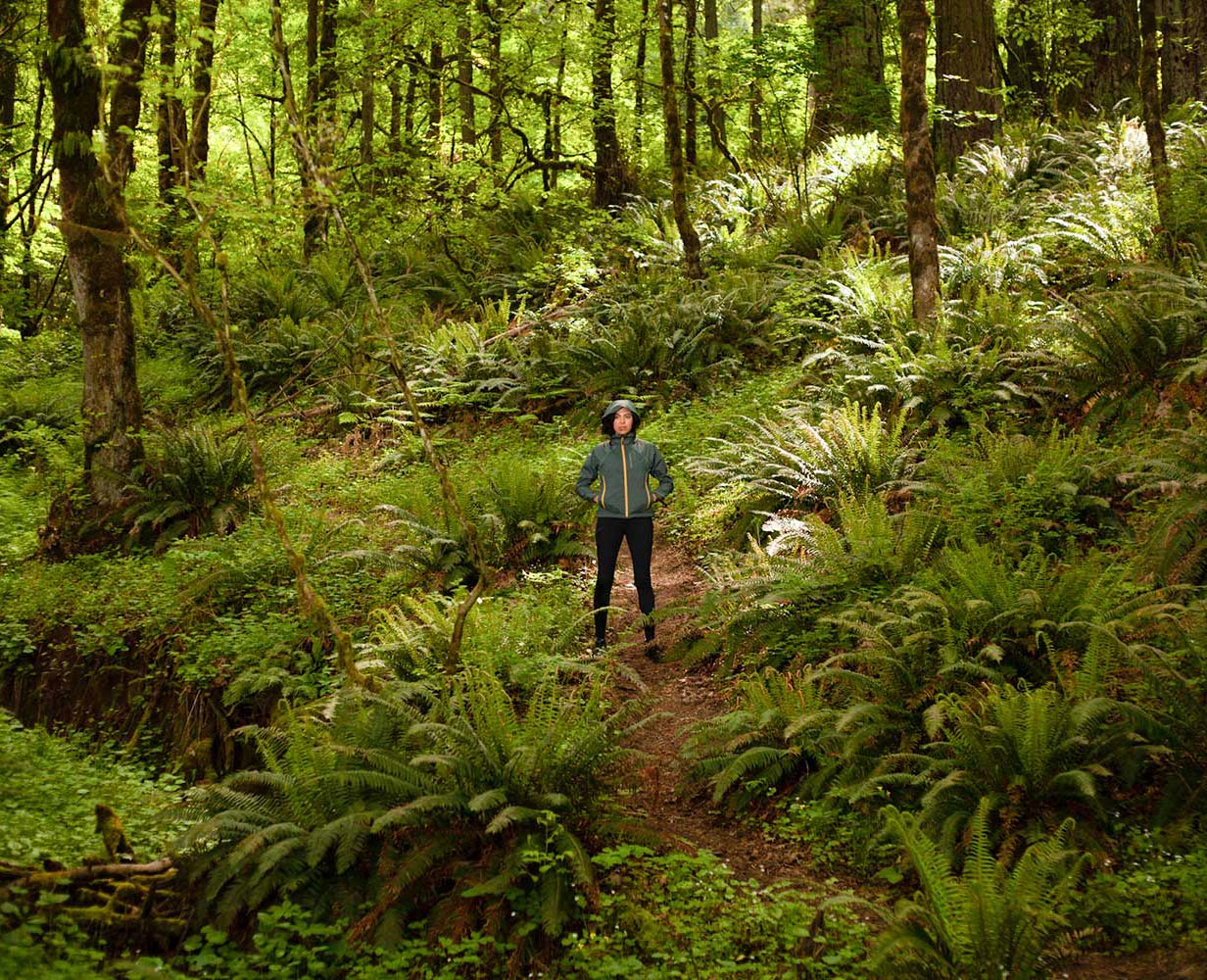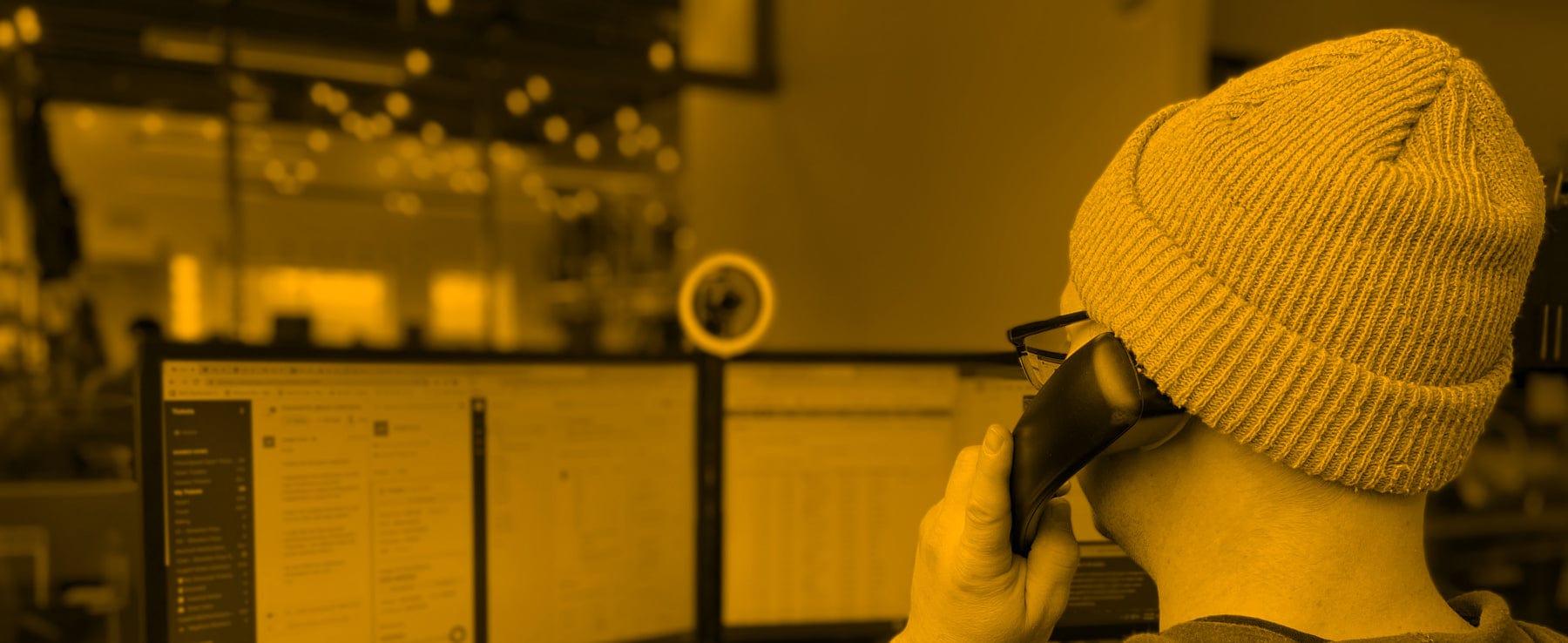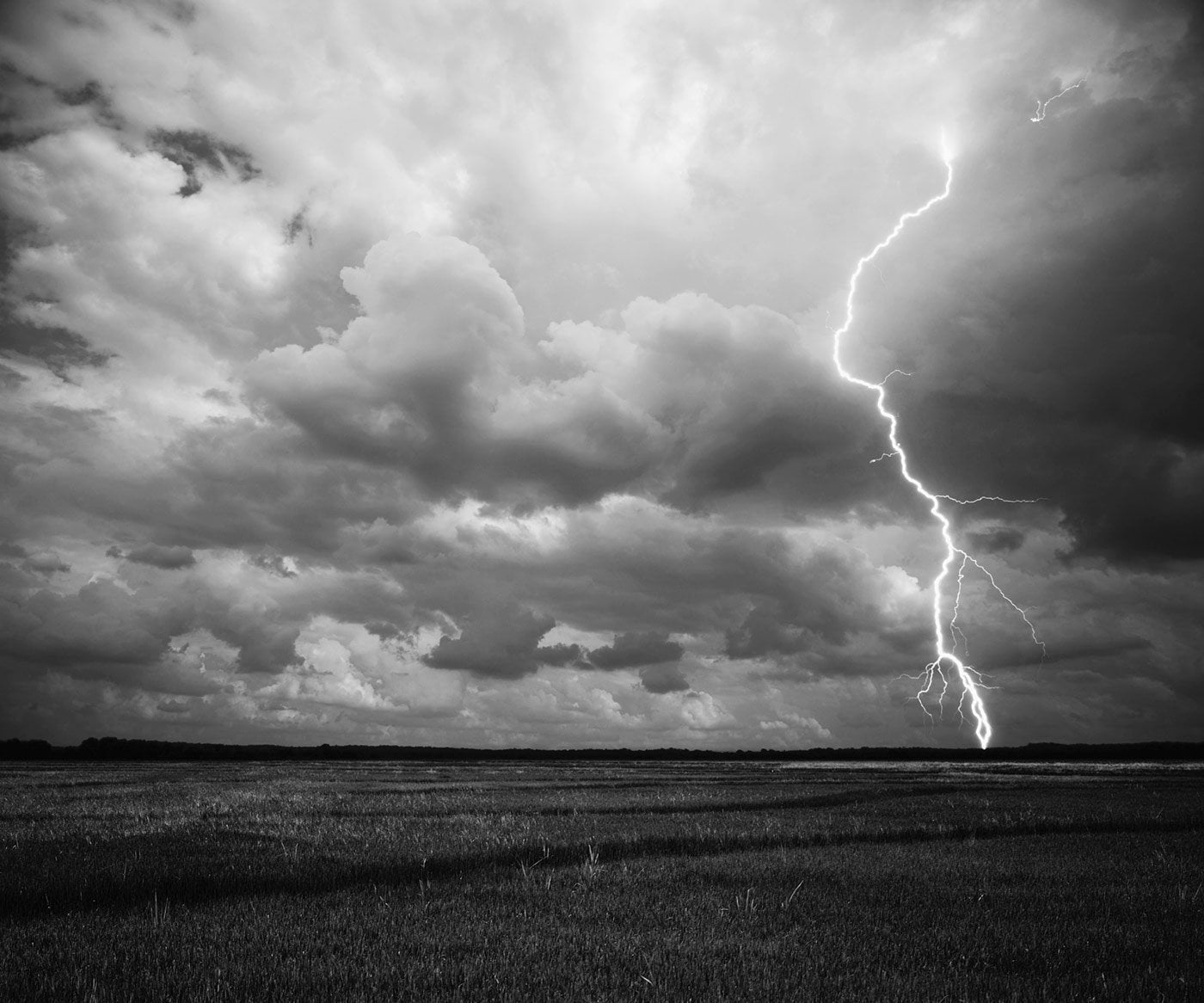Riding a bicycle along the coast from Santa Barbara to Santa Monica is stressful, always. It’s an incredibly romantic notion to think that the beauty of Southern California’s coast can be fully taken in while traversing it on two wheels. With folks texting while driving and photographing while steering three-ton vehicles, a relaxed breath can’t be taken in while riding a bike next to them. That said, I remember a few times when I was able to block out the cars and find one or two blissful zen moments. That makes it sound terrible and not worth the ride, it isn’t actually terrible, it’s actually super beautiful. As a cyclist, it gets a bit dicey, but is well worth the spin for sure.

At the near end of one such 90-mile ride, with temps in the hundreds, I reached the bluffs above the Santa Monica Pier. After resting my bike next to me on a bench, I leaned forward to rest my head in my hands and instantly felt zapped by painful electricity (!!!). I stood up in fear thinking I had been tased, which thankfully I never have been, but no assailant or police officer was near.
Had I just been hit by lightning?
I checked my clothing and helmet, no burn marks or tears could be found. The crazy sensation left me as quickly as it had struck me, and “struck” was indeed the word I’d use. I sat on the bench for a while afterwards, completely perplexed. The pain was gone, but the confusion leaguered the whole ride from that beach bench back to my apartment in Los Angeles.
That shock wasn’t just a single experience, as I was hit several times over the next few months during my cycling adventures. The time between each occurrence was just long enough to almost forget that I had been struck. Each zap, looking back, happened when I was tired or very stressed. And only when I was looking down at the ground.

National Geographic states, “The odds of becoming a lightning victim in the U.S. is 1 in 700,000”.
So, let’s call that very rare.
Wikipedia states, “Roy Cleveland Sullivan was hit by lightning on seven different occasions and survived all of them. For this reason, he gained the nickname ‘Human Lightning Conductor’ and ‘Human Lightning Rod’”.
Ok, let’s call that super rare.
Was I, somehow, the multiple lightning bolt mystery of the century? Or touched by God? Does one even know if they are touched by a higher power? And, though a non-believer, it had most definitely crossed my mind.
Healthline.com states, “Lhermitte’s is often described as an electrical shock or buzzing sensation. It’s a sudden, uncomfortable sensation that travels from your neck down to your spine.”
Well, that makes some sense, but it can’t be that simple.
“The Lhermitte’s sign, also called Lhermitte’s phenomenon, is often associated with MS.”
No. Just, no.
I didn't know what MS was and knew no one with it. I couldn't even spell it, it wasn’t even kind of/sort of on my radar. No need to inform you about what the disease is, you’ve already opened a new tab to find out for yourself right now (and, don’t be ashamed, it’s ok to not know everything about everything).
After several tests, I was diagnosed with Multiple Sclerosis on March 6th of 2013. A lumbar puncture procedure found odd protein levels in my spinal fluid.
Absolutely, positively, do not open a new tab right now and look at the needle used for this.
Since you did open that tab, and because you found it disturbing, I’ll add that I didn’t heal from the procedure. Normally the patient is walking, with a mild headache, just three days later. But, the needle’s insertion point in my spine didn’t heal on its own and I kept leaking spinal fluid. Oh, come on, who leaks spinal fluid? A week passed and the headaches worsened, I was brought back into the neurologist to get a blood patch.
More from Wiki, “An epidural blood patch is a surgical procedure that uses autologous blood in order to close one or many holes in the dura mater of the spinal cord, usually as a result of a previous lumbar puncture.” The same large needle is used, once again (it really is one of the worst things that I’ve been through).
It didn’t take, so I needed a second blood patch done a week later.
40 days passed before I was able to get out of bed without a crushing headache. The second patch finally worked. I was standing, semi-functioning—we’ll get to that—human with an incurable disease.
The electric shocks that I mentioned continued, but I got used to them, and I also started avoiding them by learning to not look straight down while tying shoes, buttoning pants, etc.. By not stretching my neck, they happened with much less frequency. Learning to deal with/avoid the Lhermitte zap was one thing, learning to cope with my actual multiple sclerosis nerve pain was another.
Some folks with MS have loss of vision. Most have pin and needling in the limbs. Others with foggy thoughts and forgetfulness. I suffered a bit of each but my hands took, and still take, the brunt of my discomfort.

Over the years since my diagnosis and beginning of all the trouble, I’ve tried to describe the pain that I live with. Imagine your mother driving her car over your hands, and parking on them. She opens her door, gets out, smiles at you and walks away. Not a pretty picture, and I use “your mother” because it’s the last person you would think who’d harm you in such a terrible way. Mom, in this instance, is your body. Your Mother, and your body, you trust. They both tell it straight and never let you down, right?
My hands have been in constant pain since the summer of 2012. Every year, month, week, and minute.
Let that sink in.
My neurologist isn’t sure why my pain is so localized, perhaps the Myelin sheaths—sleeves of fatty tissue that protects nerves in human arms and hands—are too damaged to repair themselves. Or just not yet, might take a decade. Over the years, I’ve gotten used to the pain and proper meds have made life easier. If the original pain was a 10, the drug Gabapentin has brought the pain down to a steady 6. But, doing even the simplest of tasks still brings a grimace to my face.
As far as cycling goes, shifting on modern road bicycles requires that the hand throw levers and paddles into different positions. For most folks, this is done with ease. For me, it became difficult to ride more than a few miles without stinging nettles and frustration ended the joy of bicycle riding. Braking, as you know or can imagine, takes more force… and, well, there’s just no way around that. It is what it is. I switched to electric shifting in 2013, solving half of the dilemma and some is always better than none.

Those who live with chronic pain learn to stack up more and moreover the years, slowly adding new layers of discomfort. We either harden as stone or crumble as chalk, which is as brutal to read as it is to type. I’ve had months of each, back and forth, sweeping up the chalk and reforming myself into a more stable form, only to be blown into the wind again. That said, I can walk most days, see clearly most days and my hand pain is manageable enough to do most things.
What I can no longer do is play drums, something I did in traveling bands from the mid-80s until the Fall of 2012. I don’t have the strength to hold sticks or can handle the pain of each strike of a drum head. I can still play guitar, though I’ve lost the dexterity to make complex chords or have the speed for complicated runs up and down the fretboard. I can’t lift free weights, but can use a lot of machines in the gym, pushing and pulling with my palms or forearms instead of using fingers. I can’t paddle in a kayak for very far or in anything but the glassiest of water. Buttoning pants is hard, opening doors is tough, zippers frustrate me, typing is possible via of constant breaks, tying shoelaces annoying.
You get the idea.
Until I started riding in, and working for, the Bike MS events, I had stayed away from “living with multiple sclerosis” meetings. I didn’t want to share my story, I was over-emotional when speaking about it, and I was terrified by those I saw suffering worse pain than myself. To see people falling apart before my eyes as they aged and telling their stories of woe didn’t interest me in the least. I suffered enough, on my own, no need to take on the burden of others.
To this day, I’ve only been to a single meeting.
Four years ago, I was invited to help work the Western Bikeworks tent at Oregon’s Bike MS weekend. An actual mechanic solved the difficult problems that riders had while I solved the simple fixes and greeted folks who entered our tent. I’ve returned each year and was even asked to speak this summer, on a stage, in front of everyone. My terror turned to stoke as people were moved by my story.
This year’s event was a bit tougher than usual, as I was recovering from fracturing my pelvis only six weeks before the group ride. On June 14th, my bicycle tires got stuck in a rut in the gravel and I was thrown hard onto my right side. The injuries that I sustained kept me off my feet and out of work for a month. That said, I’m stubborn, determined and as soon as I got a clear X-Ray from my doctor, I was back in the saddle. Though in discomfort, I completed the 62-mile MS ride.
While out on the course I met so many good folks, all of which excited to ride in honor of a loved one suffering from multiple sclerosis or riding while suffering from MS themselves. To have a cause—a purpose—changes a normally tough ride into an extremely memorable and cathartic experience. I stopped to help some riders get up tougher hills, as a hand on the back is the support we all need from time to time.
The experience, the riders, the Bike MS staff—the entire weekend was incredible… I’m hooked and look forward to the event every summer. I’ve found my people and my purpose.

To learn more about MS visit the National MS Society.
Showers Pass is a proud supporter of Bike MS as well as many other organizations dedicated towards championing cycling in our community.
